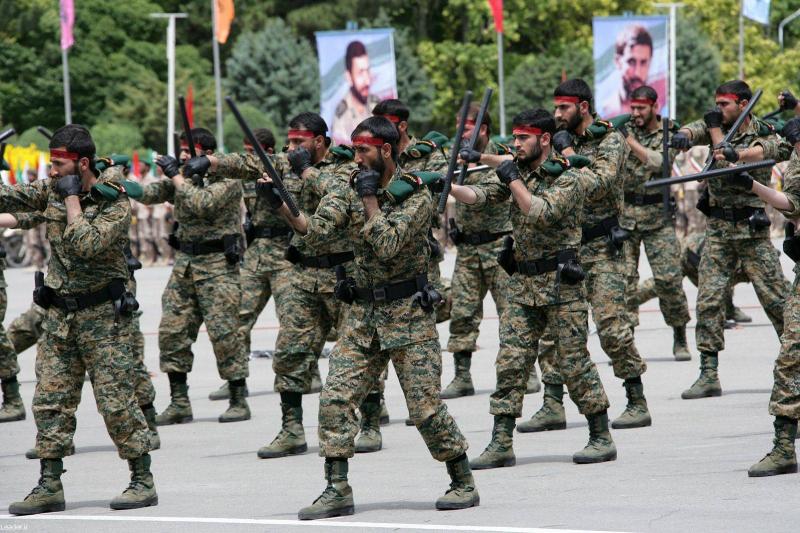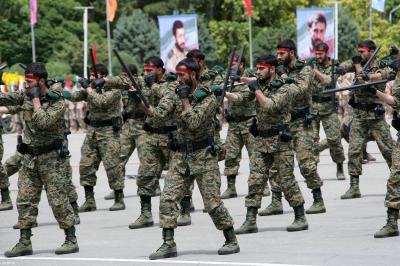Will the "Islamic Republic" respond to the assassination of Ismail Haniyeh, the head of Hamas's political bureau, in a place that was supposed to be safe in Tehran? That is not the central issue. The issue is linked to Iran's interests, which must balance many factors, including the cost of retaliation on one side and maintaining its prestige in the region and the world on the other. The world, along with the region, is anxiously waiting for a response from Iran, especially considering the clear and firm American stance in defense of Israel.
First of all, it is useful to consider that Iran is a rational state that does not embark on significant adventures, especially when it comes to direct involvement in such ventures. The "Islamic Republic" has consistently played an extremely clever game based on several foundations. Among these foundations is a long-term, beneficial investment in sectarian militias that it has fostered in this Arab country or that one. Hezbollah remains the most prominent example in this domain. The party, which is merely a brigade within the Iranian "Revolutionary Guard," completely controls Lebanon's resources. It holds the power of war and peace in the country, brandishing its sword whenever it wishes. It prevents the election of a president for the republic in Lebanon. In clearer terms, Lebanon has become a hostage to Iran. The "Islamic Republic" does not care what happens to Lebanon and the Lebanese. The main concern is Iran's interest, which was the first beneficiary of the American invasion of Iraq; indeed, it was the only state in the region that encouraged this invasion and provided the necessary facilitation over twenty-one years ago, setting the stage for its control over Iraq and the establishment of a regime similar to the Iranian system there. It achieved this by imposing legitimacy on the "Popular Mobilization Forces," a coalition of militias loyal to it. The "Hashd" plays a role in Iraq, under a cloak of legitimacy, similar to what the "Revolutionary Guard" does in Iran... albeit within certain limits imposed by Iraqi-specific contexts.
For years, the "Islamic Republic" has controlled the rules of the game in the region before the war in Gaza began. It is unclear what it will do now. However, recent past experiences indicate that Iran does not venture far into recklessness. This is supported by its manner of responding to the American assassination of Qasem Soleimani, the leader of the "Quds Force," as he left Baghdad airport with the deputy head of the Iraqi "Popular Mobilization," Abu Mahdi al-Muhandis, nearly four years ago. Soleimani was the second most powerful figure in Iran, with only the Supreme Leader Ali Khamenei above him. The "Islamic Republic" was content with a folkloric response to the assassination by the Trump administration of someone considered a symbol of the Iranian expansionist project in the region and an architect of relations with Hamas and other groups... the actual commander of all Iranian militias scattered throughout the region.
Iran's response was also folkloric when Israel assassinated senior leaders of the "Quds Force" who gathered at the Iranian consulate in Damascus last April. It became very clear that there was no Iranian desire to escalate into a direct confrontation with Israel. The priority remains to defend the Iranian regime and prevent its collapse. This is the most important issue for the leaders of the regime. This was evident last year during a confrontation with Azerbaijan. Iran backed down and ceased any provocations on this front, despite the strong and deep relationship between Azerbaijan and Israel.
The "Islamic Republic" must undertake some military action, at least to preserve its face. However, it must also consider the severe damages Israel might inflict upon it. While it is true that Israel is in a difficult position after more than three hundred days of war in Gaza, it is also true that the Jewish state, engaged in an existential battle, has transformed into a real monster in every sense of the word. The Netanyahu government has not yet eliminated Hamas; instead, it has compensated for that by eradicating Gaza from existence, displacing its people and transforming it into an uninhabitable land. Moreover, it has turned vast areas of southern Lebanon into human-free zones. It has destroyed dozens of border villages and towns to allow Hezbollah to claim it is waging a "support" war for Gaza. That is, to assert that it is working according to the Iranian agenda at Lebanon's expense, including the southern populace.
It is noteworthy that the Syrian regime, which the "Islamic Republic" has kept alive by engaging with it in the war it has waged against its people for thirteen years, is currently pretending to be indifferent, particularly in light of direct threats from Israel. As for Iraq, where Prime Minister Muhammad Shia al-Sudani lacks real authority, everyone in the country seems to be fully aware that joining a direct confrontation with Israel will come at a great cost. It's not unlikely that Basra port, Iraq's only port, might face a fate similar to that of Yemen's Al-Hudaydah port, which is controlled by the Houthis.
Iran is seeking a way out of the predicament it finds itself in. It must strike Israel while simultaneously avoiding an Israeli-American backlash. How to extricate itself from this dilemma with minimal damage while making precise calculations, devoid of slogans and the commodification of Palestine and Jerusalem... at a time when it is well known that Ismail Haniyeh, who was assassinated in Tehran, is nothing more than a symbol used by the "Islamic Republic" to assert that it is the most important regional player in the Middle East and the Gulf.




